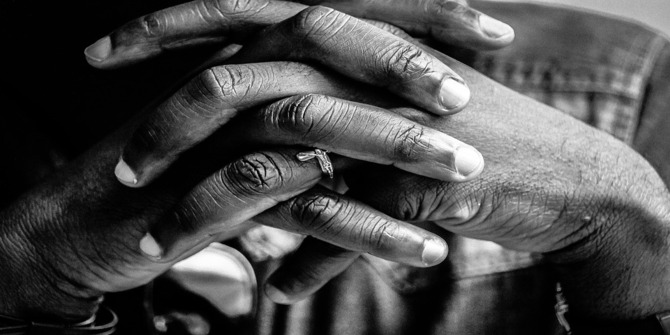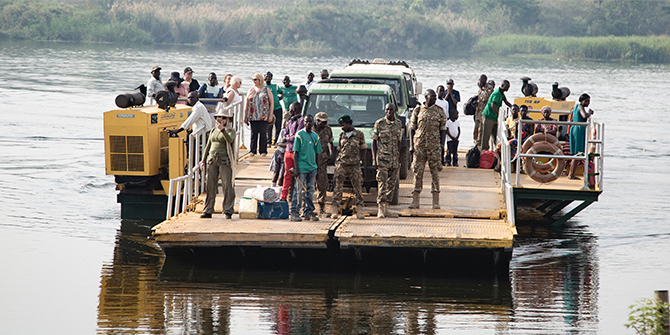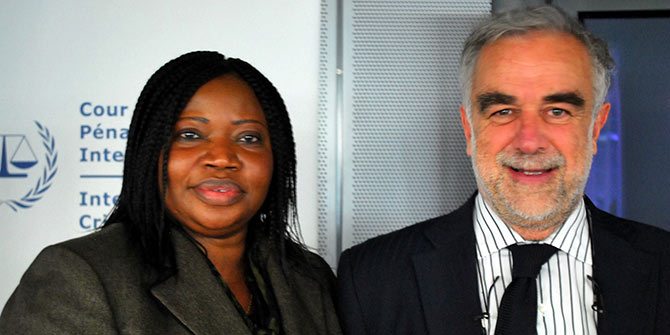During the trial of LRA commander Dominic Ongwen at the International Criminal Court, the request was declined to adopt Ugandan traditional justice mechanisms in sentencing. The move raises questions about the value of these mechanisms in future cases and, should they be considered, how they might overcome expected shortcomings. The legal representation for victims in the Prosecutor Vs Dominic Ongwen case outline the potential of traditional justice mechanisms and the risk of marginalising already discriminated groups.
In February 2021, Lord’s Resistance Army (LRA) commander Dominic Ongwen was charged with 70 different charges of crimes against humanity and war crimes at the International Criminal Court (ICC), 62 of which led to convictions by the trial chamber. The case of The Prosecutor v. Dominic Ongwen is unique in many ways: Dominic Ongwen was himself abducted by the LRA as a child, rose through the ranks and became one of its senior commanders. Furthermore, this is first ICC case where a convicted person has requested the trial chamber adopt and apply traditional justice mechanisms in sentencing. But these mechanisms have no basis in the Rome Statute of the ICC and nor does the Statute provide any guidance on how this issue should be handled should a trial chamber be inclined to consider such a request.
Traditional justice mechanisms in Uganda
Crimes against humanity and war crimes perpetrated by the LRA in greater northern Uganda formed the basis of the prosecutor’s case against Dominic Ongwen. Ethnic communities in the region possess elaborate traditional justice mechanisms which, prior to the birth of the modern state, were employed to deal with justice and accountability issues where societal and family values were breached by members of a society, clan or family, or even by outsiders. Such infractions attracted severe personal punishment and, in some cases, collective punishment.
While not documented, the values, infractions (crimes) and punishments, respectively, were often passed down orally from generation to generation through the elders of the community. However, the birth of the modern Ugandan state effectively removed the management of conflict from the hands of victims and their families and passed it over to the state, eroding certain aspects of traditional justice mechanisms, including the role of community elders and traditional justice leaders in resolving conflict. Although the use of these mechanisms declined, and some would argue for good reasons, it is interesting that the trial chamber in the Ongwen case was invited to consider the application of an Acholi traditional justice mechanism – Mato Oput.
Mato Oput is a process and ceremony involving two clans bringing together the victim and the perpetrator to establish, through mediation, the ‘truth’ and pay compensation. Crucial to the process is the perpetrator’s initiative to admit his/her role in the crime and ‘this must be completely voluntary or not done at all’. One trusted person is expected to mediate between the families of victim and perpetrator and, once the offending side agrees to the compensation, the family or clan is responsible for raising the compensation. A date is fixed for the Lapid Kwo (negotiator of the compensation) to receive the compensation and an ajwaka (traditional healer or spirit medium) is called on to raise the dead, whose sprit will determine which person in the offended clan will receive the compensation.
Applying Mato Oput at the ICC
The violence perpetrated by the LRA, however, affected not only the Acholi community but several ethnic communities in northern Uganda, and therefore the use of an Acholi traditional justice mechanism would arguably have been rejected by the conflict’s victims. Indeed, for victims, the use of traditional justice mechanisms supposes the return of ownership over conflict management. In this context, the perpetrator is duty bound by their own recognition that they have wronged and caused harm and therefore must initiate the justice process through their clan or family by reaching out to the victims’ family to trigger the accountability process. The victims must know the truth about the infraction and the perpetrator must take responsibility by accepting the imposed punishment.
Furthermore, victims of the conflict in northern Uganda strongly contend that traditional justice processes, strictly speaking, do not have a history of application in the context of serious crimes, such as those that characterise the charges against Dominic Ongwen. For example, Sexual and Gender Based Crimes (SGBC), such as forced marriage, forced pregnancy and sexual slavery for which Dominic Ongwen was convicted, are atrocities that have not been mediated under the process of Mato Oput or any other traditional justice mechanism, limiting applicability. The use of traditional justice mechanisms as punishment for SGBC is, therefore, something that could be repugnant to public policy but also demeaning to victims of these crimes in the modern age, which is characterised by the promotion and protection without discrimination of the equal rights of the individual.
The application of traditional justice mechanisms must be considered based on the value they may add during certain parts of the proceedings. This must be context specific and fully incorporate the views of victims of mass atrocities on whether they would want to engage with these traditional processes. Further, any traditional justice process must ensure the full participation of women and other traditionally marginalised groups to ensure that they do not perpetuate systemic or culturally ingrained forms of discrimination. Any traditional justice mechanism must deal with, in a holistic manner, sexual and gender based crimes given that gender-related concerns are often overlooked in the implementation of traditional justice mechanisms, including failures to examine how gender inequality underpins much of the violence that takes place during conflict.
The Ongwen case raises questions about whether the ICC should, in future cases, dismiss the possibility of including traditional mechanisms during specific stages of the proceedings, for example in the characterisation of reparations principles. But it is important not to over-romanticise the use of these mechanisms, which may often perpetuate systemic or culturally ingrained forms of discrimination or, crucially, fail to address fully the types of harm suffered by victims.
Photo by RODNAE Productions from Pexels.





